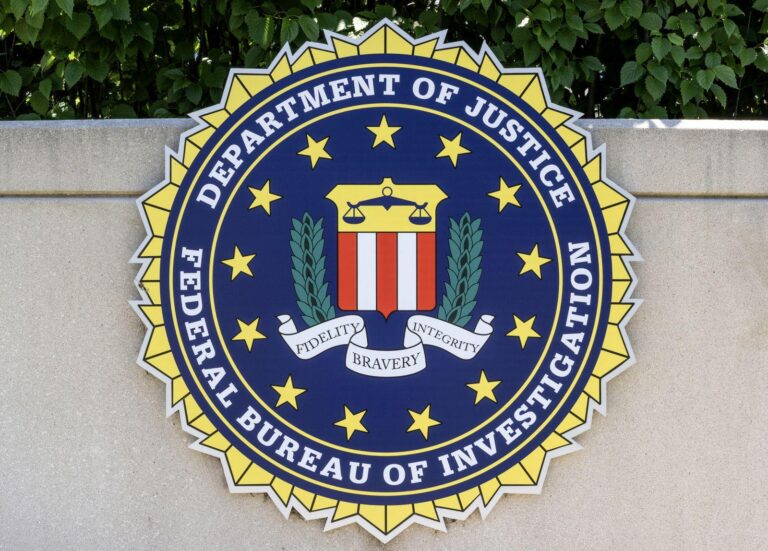How to Connect with the FBI: A Comprehensive Guide to Reporting and Communication
Immediate Response: Reaching the FBI in Emergencies and Critical Situations
When facing an urgent threat or emergency, prompt communication with law enforcement is essential to ensure swift action. While dialing 911 remains the fastest way to summon emergency services nationwide, the FBI also provides a dedicated 24/7 tip line at 1-800-CALL-FBI (1-800-225-5324). This hotline is staffed continuously by trained agents who prioritize high-risk reports and coordinate rapidly with local, state, and federal partners. For those wishing to report sensitive information anonymously, the FBI’s secure online Tips portal offers a confidential platform designed to protect your identity and data.
- Emergencies: Call 911 immediately for urgent assistance.
- Critical threats: Use the FBI tip line for federal-level intervention.
- Non-urgent concerns: Submit information via the online tip portal.
| Contact Option | Purpose | Availability |
|---|---|---|
| 911 | Emergency response | 24/7 nationwide |
| 1-800-CALL-FBI | Urgent federal threats | 24/7 monitoring |
| FBI Online Tips Portal | Confidential, non-urgent tips | Accessible anytime |
The Structure and Functions of FBI Field Offices Across the U.S.
The FBI operates through an extensive network of 56 field offices strategically located throughout the United States. Each office is tailored to address the specific security challenges and investigative priorities of its region, enabling rapid and localized responses. These offices act as vital centers for intelligence collection, criminal investigations, counterterrorism efforts, and collaboration with other law enforcement agencies.
Staffed by specialized teams, these field offices focus on areas such as cybercrime, organized crime, public corruption, and threats to national security. This decentralized approach allows the FBI to efficiently manage a wide array of criminal activities while fostering strong community relations through outreach and public safety programs. Key responsibilities typically include:
- Major Crime Investigations: Addressing violent crimes, financial fraud, and narcotics trafficking.
- Counterterrorism Operations: Detecting and preventing terrorist activities domestically and abroad.
- Cybersecurity Enforcement: Combating cyber intrusions, digital espionage, and online scams.
- Intelligence Analysis: Gathering and interpreting data to support national defense strategies.
Best Practices for Submitting Tips and Confidential Information to the FBI
Providing clear, accurate, and detailed information is crucial when submitting tips to the FBI. Include specific facts such as dates, locations, descriptions, and identities of involved individuals whenever possible. Avoid conjecture or unverified statements to ensure the information is actionable. To safeguard your privacy and the integrity of your submission, use official FBI communication channels that offer encryption and confidentiality.
Consider the following tips for effective reporting:
- Stick to factual, verifiable details without exaggeration.
- Attach relevant evidence like photos, videos, or documents.
- Utilize official FBI forms or secure email systems for submissions.
- Protect your anonymity by limiting personal information shared online.
- Follow submission instructions carefully to direct your tip to the correct department.
| Submission Method | Advantages | Ideal Use |
|---|---|---|
| Online Tip Form | Secure, user-friendly, anonymous option available | General public and quick tip submissions |
| Phone Hotline | Direct communication, immediate feedback possible | Urgent information and interactive discussions |
| Visit Local FBI Office | Face-to-face interaction, physical evidence submission | Complex cases requiring detailed follow-up |
Utilizing the FBI’s Digital Platforms for Efficient Communication
Mastering the FBI’s online tools is key to ensuring your messages and reports reach the right personnel promptly and securely. The Field Offices Directory offers direct contact information for offices nationwide, facilitating localized engagement. Additionally, the FBI’s secure portals protect sensitive data and streamline inquiries, enhancing both confidentiality and response times.
Key digital communication options include:
- Online Reporting Forms: Confidentially submit tips and complaints tailored to specific investigations.
- Encrypted Email Channels: Communicate securely with FBI representatives to maintain privacy.
- Virtual Support Services: Access FAQs and live chat for immediate assistance on common questions.
Summary: Enhancing Public Safety Through Open FBI Communication
In today‚Äôs environment, where transparency and accessibility are vital, the FBI‚Äôs ‚ÄúContact Us‚ÄĚ page acts as a crucial link between the agency and the public. Whether you are reporting a crime, seeking information, or requesting assistance, the multiple secure channels provided ensure efficient and confidential communication. As the FBI evolves to meet new challenges and technological advancements, maintaining open, trustworthy lines of communication remains fundamental to its mission of protecting the nation. Engaging with the FBI through these resources is a vital step toward fostering community safety and cooperation.







